Venezuelan Beverages: Basic Overview
Common Ingredients
Common Preparing Methods
Key Taste
Drinking Etiquette
Culinary Festivals
Influence and Fusion
Classifications of Venezuelan Beverages
-
Alcoholic
These beverages, often derived from indigenous traditions and influenced by Spanish colonial history.
They range from distilled spirits to homemade brews.
-
Non-Alcoholic
Many of them reflect the nation’s penchant for sweet, refreshing flavors, especially suited to its tropical climate.
These drinks often incorporate local ingredients like sugarcane, tropical fruits, and rice or corn.
Venezuelan beverages include both alcoholic drinks and non-alcoholic drinks popularly consumed in Venezuela, a South American country. They are a key part of the country’s cuisine.
Universally popular drinks in Venezuela are beer, rum, and local staples like ponche crema and Cocuy.
The traditional drink culture and its popularity are also fascinating. Here, I’ll discuss every Venezuelan drink with various information, like origin, main ingredients, flavors, or other special features.
I also walk you through the guide on pairing these delectable drinks with Venezuelan delights, like main courses, appetizers, side dishes, desserts, and street foods.
Read on, and you will know everything about the 11 most well-liked Venezuelan alcoholic and non-alcoholic drinks.
11 Popular Venezuelan Beverages with Filters
Let’s take a glance at the world of Venezuelan beverages, which has 11 choices according to their popularity. This guide provides comprehensive details on these drinks’ ingredients, appearance, flavor, or history. For a quicker search, feel free to use the filter provided.
I also highlight some key points about Venezuela’s traditional, national, fusion, or street drinks as below.
While traditional beverages like café con leche (coffee with milk) remain favorites, there’s an emerging trend towards innovative drinks, including tropical fruit juices and smoothies.
Rum stands out as Venezuela’s national alcoholic beverage, while tizana is the national’s non-alcoholic drink.
On the streets of Venezuela, you can find many refreshing drinks, like fruit-based sugarcane juice or malt beverages.
Café con Leche
- Non-Alcoholic
- Traditional
Café con leche in Venezuela is a staple morning beverage, essentially a combination of strong coffee and hot milk with a creamy, velvety texture.
The taste is a delicate balance of the coffee’s deep, aromatic bitterness softened by the milk. This beverage is often enjoyed with traditional pastries or arepas.
Papelón con Limón
- Non-Alcoholic
- Street Beverages
- Traditional
Papelón con Limón is a mixed drink from Venezuela, whose main ingredients are rapadura (sugar cane juice), water, and lime or lemon juice. Understandably, papelón con limón is a sought-after beverage on hot days, providing a sweet and tangy flavor.
Papelón con limón pairs wonderfully with traditional Venezuelan foods like cachapas (corn pancake), hervidos (chicken or beef stew), or arepas (round cornmeal cake).
Frescolita
- Non-Alcoholic
- Street Beverages
Frescolita is a soft drink from Venezuela, and it’s also popular in other Latin American countries. The key ingredients of Frescolita are carbonated water, sugar, sodium benzoate, citric acid, and artificial color flavors.
This Venezuelan carbonated soft drink has a unique flavor reminiscent of bubblegum. Locals even use Frescolita in baking recipes. Plus, it’s similar to red cream sodas popular in the United States.
Chicha
- Alcoholic
- Non-Alcoholic
- Street Beverages
- Traditional
Chicha is a traditional drink from Latin America, especially Venezuela. Its main ingredients range from wild plants, corn, and potatoes to palm fruit. This drink can be either fermented or unfermented.
Venezuelan chicha is usually sweet and served with a topping of ground cinnamon or condensed milk. Fermented chicha can have considerable alcohol content.
Commonly, Chicha has a white color and eggnog-like consistency. You can find Chicha sold by street vendors in large Venezuelan cities.
Chicha de arroz is a non-fermented version made with milk, sugar, and boiled rice in Venezuela. Another variant, chicha andina, is typically sipped during Christmas and made with fermented pineapples.
Maltín Polar
- Non-Alcoholic
- Traditional
Maltín polar is a popular non-alcoholic malt beverage from Venezuela. It’s brewed similarly to beer, using barley, hops, and water, but without the fermentation process that produces alcohol.
Maltín Polar has a rich, dark color and offers a thick, creamy head when poured. Its taste is reminiscent of a light beer but with a sweeter, more caramel-like flavor.
It’s a favorite among all age groups, especially as a refreshing drink during hot weather or as a casual beverage. It’s often consumed straight from the bottle or can.
Tizana
- Non-Alcoholic
- National
Tizana is a mixed drink from Venezuela known for its vibrant color and refreshing flavor. It is the Spanish version of Tisane and is typically prepared with various tropical fruits, orange juice, limeade, and grenadine.
Tizana is a favorite at Venezuelan birthday parties, beach outings, and summer gatherings, often served with tasty snacks.
Venezuelan Beer
- Alcoholic
- Fusion
- Traditional
Venezuelan beer has a diverse range of options. In the country, it accounts for 69% of the Latin American nation’s alcohol consumption. Before local breweries took off, Venezuelans had to import beer from Brazil.
But the most popular Venezuelan beer brand is Cerveza Polar, a Pilsner-type beer introduced in 1941. Polar Light and Solera Light are famous light beers. For those who prefer non-alcoholic options, Maltin Polar is a popular choice.
Venezuelan Rum
- Alcoholic
- National
- Traditional
Venezuelan rum is a distilled drink known as Ron de Venezuela in Spanish. Rum traces its origin back to Barbados, but the Venezuelan version has since developed a distinct identity. The rum is made by distilling sugarcane molasses until the concoction is ready for aging.
Among the many varieties, Ron Santa Teresa stands out as the first Venezuelan rum producer. It boasts over two centuries of experience, creating products with remarkably smokey and woody notes.
Another notable Venezuelan rum brand is Cacique, which debuted in 1959 and has since become the best-selling rum in Venezuela.
Ponche Crema
- Alcoholic
- Traditional
Ponche crema is a traditional Venezuelan liqueur invented by Eliodoro González in the early 20th century.
This cream-based drink blends milk, eggs, sugar, and rum, with spices like vanilla, nutmeg, cinnamon, and lemon rind.
Some Ponche crema variations even include instant coffee powder or liquid coffee for an extra kick. Ponche crema is usually served as a pousse-café (layered drink) or an aperitif for any gatherings. It is particularly popular during Christmas.
Cocuy
- Alcoholic
- Exotic
- Traditional
Cocuy is a distilled liquor from Venezuela that is very popular in the regions of Falcón and Lara. Made from the fermented juice of the Agave cocui plant, its taste is akin to tequila and mezcal, earning it the nickname “the tequila of Venezuela.”
Originally considered a cheap Venezuela rural drink, Cocuy has entered the urban scene, with many bars serving Cocuy-based cocktails.
Some Cocuy is aged in oak barrels for a deeper flavor profile. An example is Cocuy Pecayero, the first Venezuelan spirit to be awarded a controlled designation of origin.
Guarapita
- Alcoholic
- Fusion
- Traditional
Guarapita is an iconic cocktail from Venezuela made by blending rum or aguardiente and tropical fruit juice such as passion fruit, pineapple, or mango.
This cocktail offers a mix of sweetness and tanginess with a fruity flavor. Served chilled, guarapita is a favorite at beach parties, festive gatherings, and social events.
What Venezuelan Drinks Can Pair With Venezuelan Foods?
To help you pair Venezuelan drinks with the best Venezuelan delicacies, this section will provide you with some of the most popular choices for accompanying food.
Before you go, please share your thoughts in the comments below. Did you discover a new favorite Venezuelan beverage? Feel free to share with me! And if you find this information valuable, introduce it to your friends. Thank you!


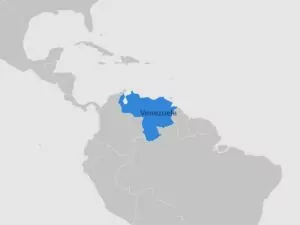





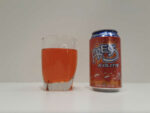
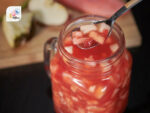
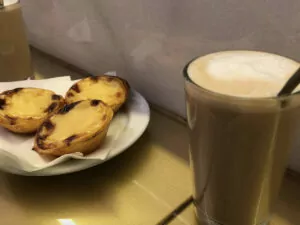
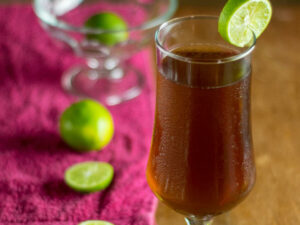
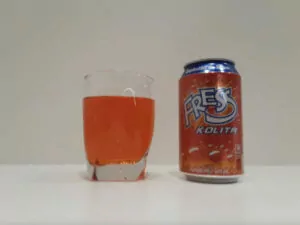
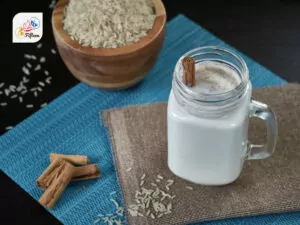
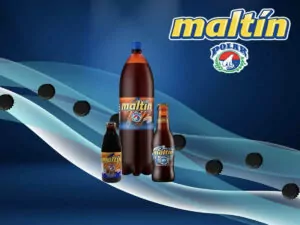
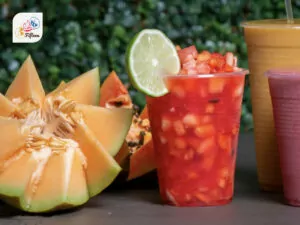
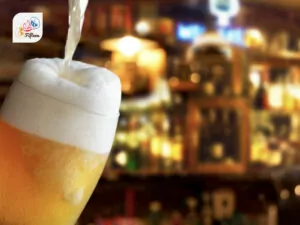
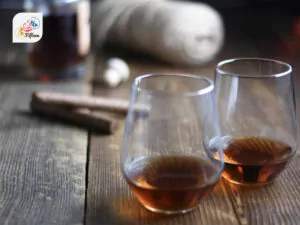
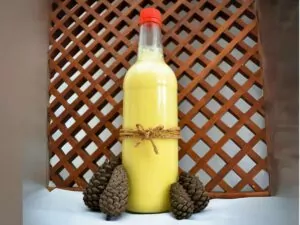

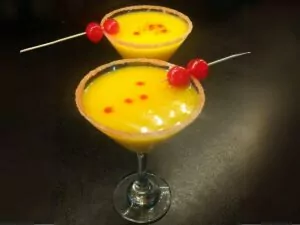
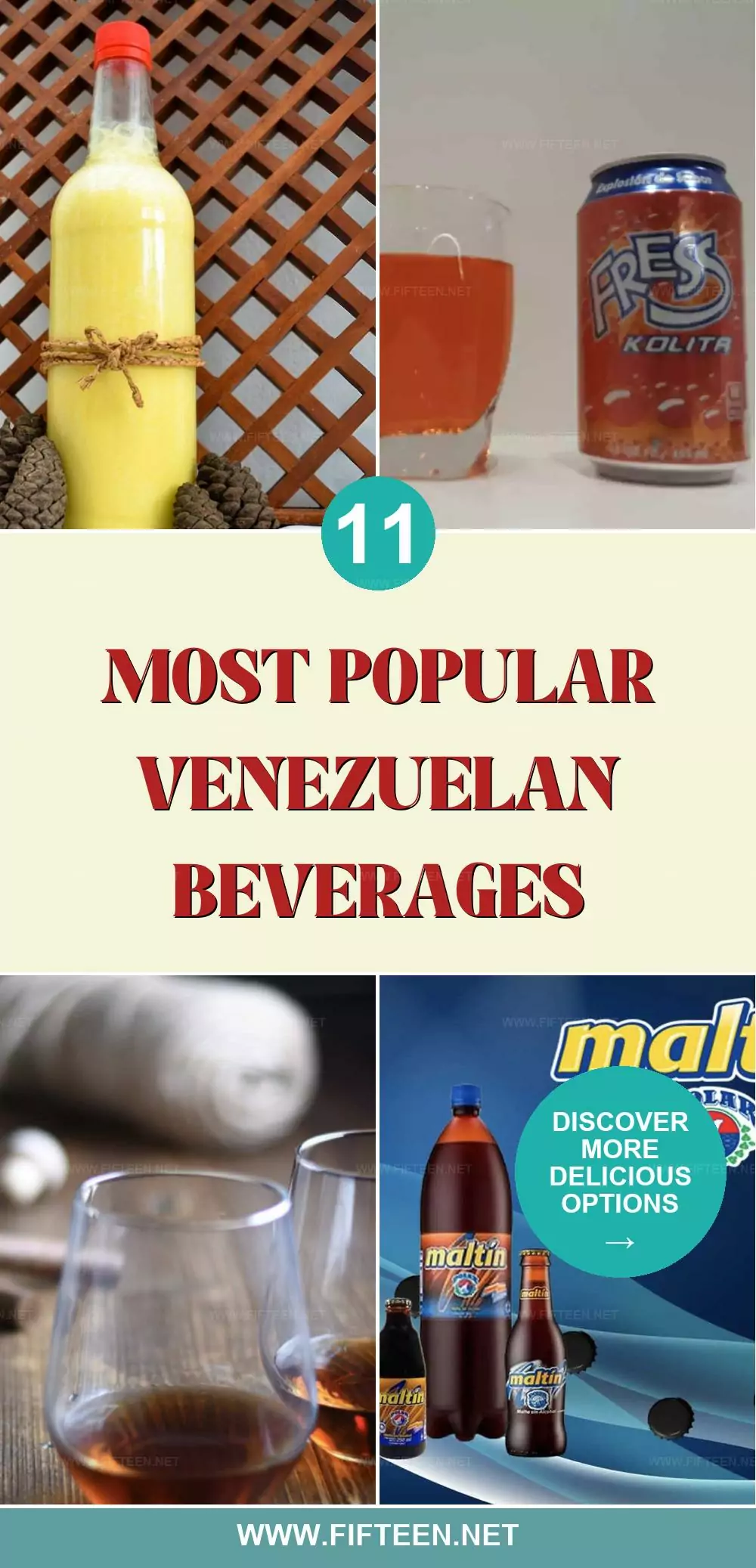
Jamie Scott
Editor in Chief, Senior Content Writer
Expertise
Home Cooking, Meal Planning, Recipe Development, Baking and Pastry, Food Editor, Cooking-video Maker, Western Food Evaluation Expert
Education
Le Cordon Bleu College of Culinary Arts
Local Community College, New York, NY
Jamie Scott is a skilled culinary expert and content creator specializing in Western cuisine. With over 15 years in the culinary field and formal training from Le Cordon Bleu, Paris, Jamie deeply understands how to blend nutrition with delicious flavors. His passion for cooking matches his commitment to making healthy eating accessible and enjoyable.
On Fifteen.net, Jamie brings a fresh perspective to classic dishes and beverages, offering readers insightful recipes, cooking tips, and a fresh view on meal planning that emphasizes taste, health, and simplicity.